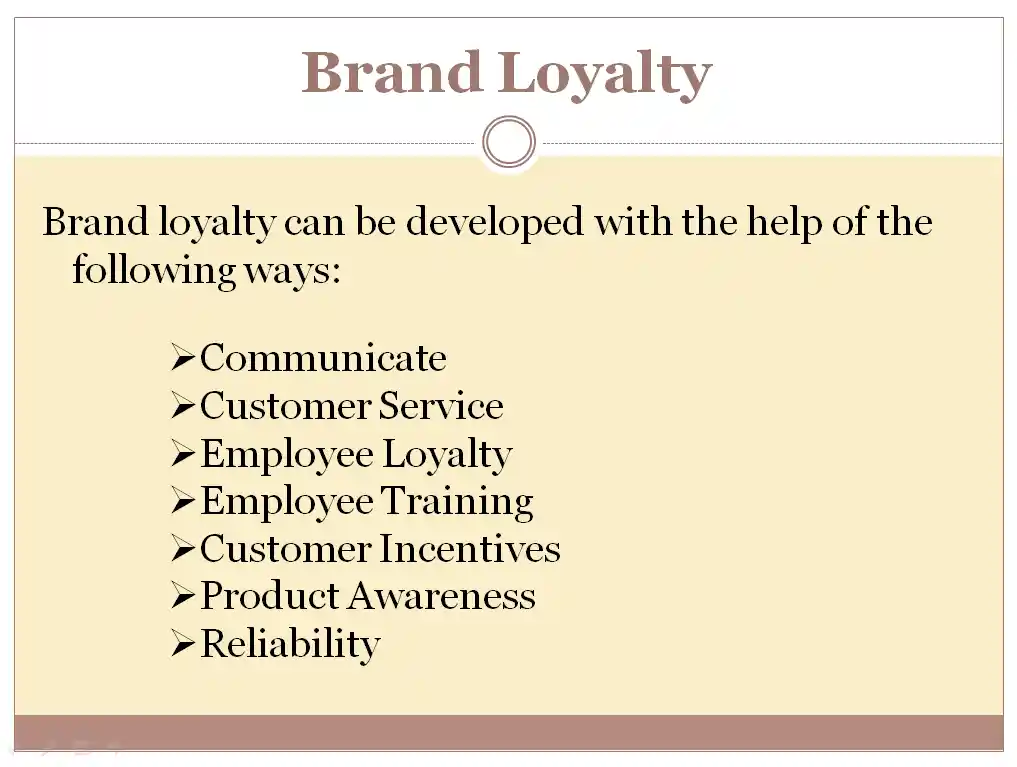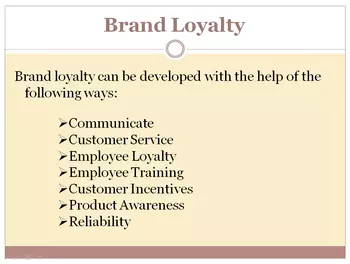Table of Contents:-
- Brand Loyalty
- Building Brand Loyalty
Brand Loyalty
Brand loyalty refers to the repeat purchasing behaviour of the customers, along with those who give favourable reviews and ratings about the brand. It is the loyalty of the customers that makes them choose a specific brand over others. For example, if a customer chooses a particular soap brand over others, then that customer can be said loyal towards that brand of soap. However, the concept of brand loyalty gains more importance when the customers make choices and take action. Also, if a customer is satisfied with a business, it does not necessarily mean that he/she would be loyal towards that business. Therefore, actions taken by customers in the form of choosing a brand over others can be described as brand loyalty.
According to Kasper and Bloemer, “Brand loyalty implies that consumers bind themselves to products or services as a result of a deep-seated commitment.”
To illustrate their argument, they differentiated between brand loyalty and repeat purchases. They claimed that brand loyalty occurs out of facts, reasons or “antecedents” whereas the behaviour of repeat purchase “is the actual re-buying of a brand.”
Building Brand Loyalty
In the process of attracting new customers, a lot of businesses ignore their loyal customers. Marketers should focus more on maintaining relationships with their current loyal customers since the cost of attracting new ones is extremely high. Efforts in this direction will yield positive outcomes for the business. Brand loyalty can be developed with the help of the following ways:
1) Communicate
Firms should regularly communicate with their existing customers through e-mails, texts, newsletters or any other form of communication.
2) Customer Service
Firms should always attempt to meet the needs of the customers. The staff should also be trained to provide quality service to the customers. This will pay off for the business in the long run.
3) Employee Loyalty
Customers will be loyal to the firm only if the firm is loyal to its staff and employees. Employees should feel a sense of belongingness towards the firm.
4) Employee Training
Employees should be trained in proper conduct and interaction with the customer. Employees should also be given the authority so that they can make decisions regarding customers’ benefits.
5) Customer Incentives
Customers should be given a reason to make repeat purchases. Offering them incentives can be one option. For example, giving a price discount on the purchase of the fifth pair of denim. In the same way, any person who has consulted a doctor regularly for 2 years can be offered a free medical check-up when he/she visits the doctor next time.
6) Product Awareness
Loyal customers regularly purchase and stock up the items. Therefore, any additional or complimentary products should be offered with the items that are regularly purchased by them. It is also important that the employees and staff know the products of the firm.
7) Reliability
Reliability is important in building brand loyalty. Firms should also attempt to keep their promises and guarantees. Customers should also be made aware of and compensated instantly in case of any mishappening.
Related Articles:
- nature of marketing
- difference between questionnaire and schedule
- features of marginal costing
- placement in hrm
- limitations of marginal costing
- nature of leadership
- difference between advertising and personal selling

You may also like:
Impact of Globalisation on International Business
Importance of International Business Environment
Complexities of International Business
Multinational Companies Meaning and Definition
Modes of Entry into International Business
Impact of media on consumer Behaviour
Impact of social media on consumer behaviour
Factors Influencing Consumer Behaviour
PsychoanalyticTheory of Perception
Difference between consumer and customer
